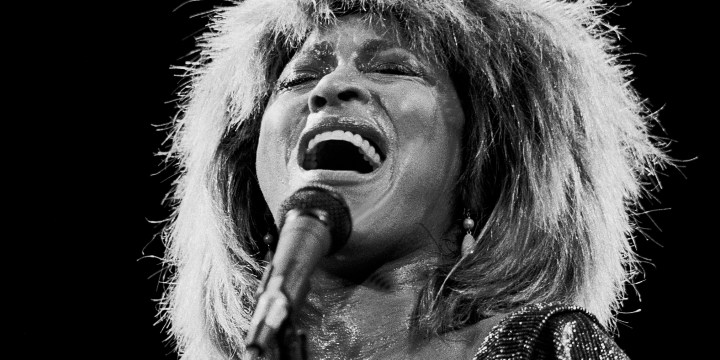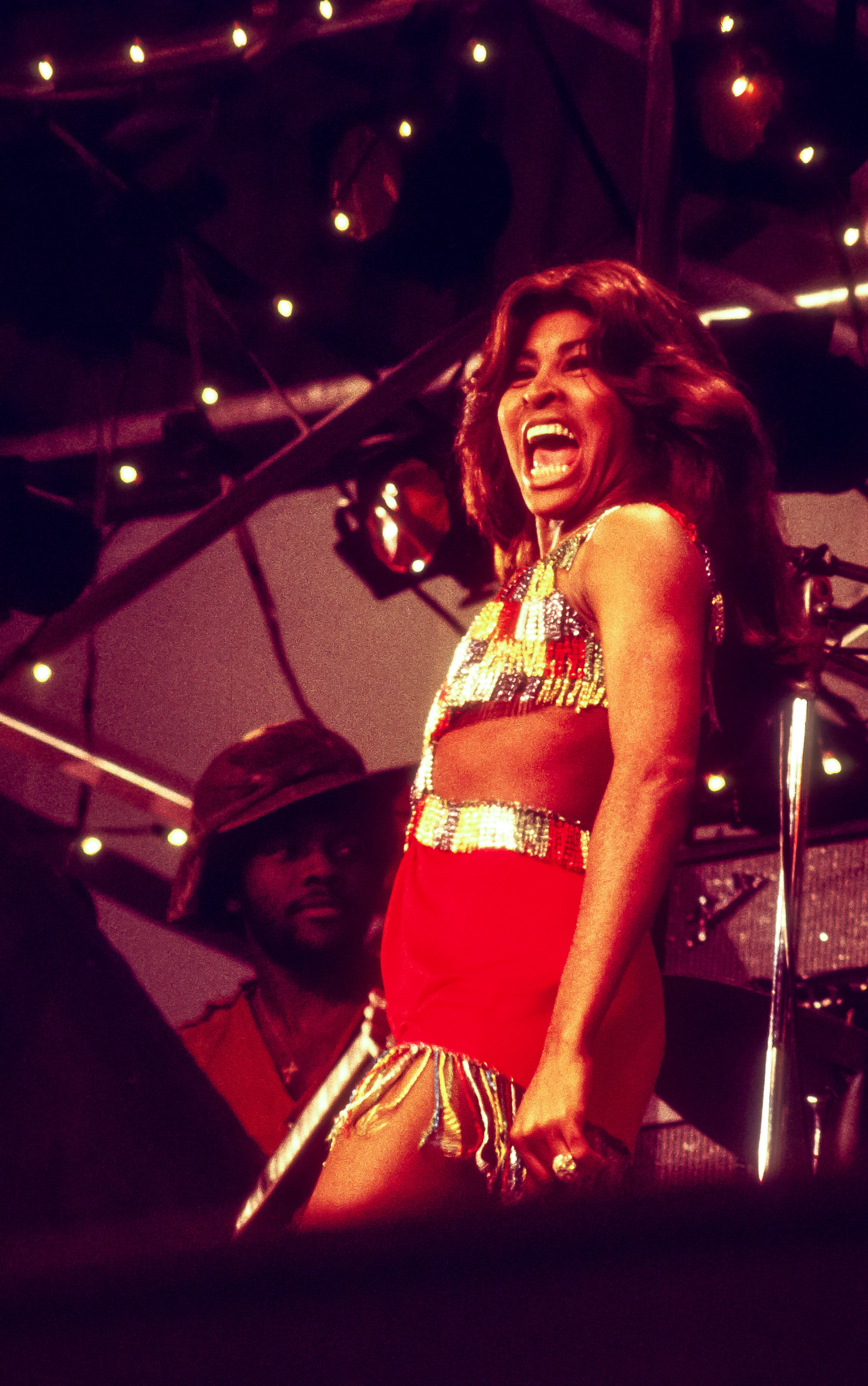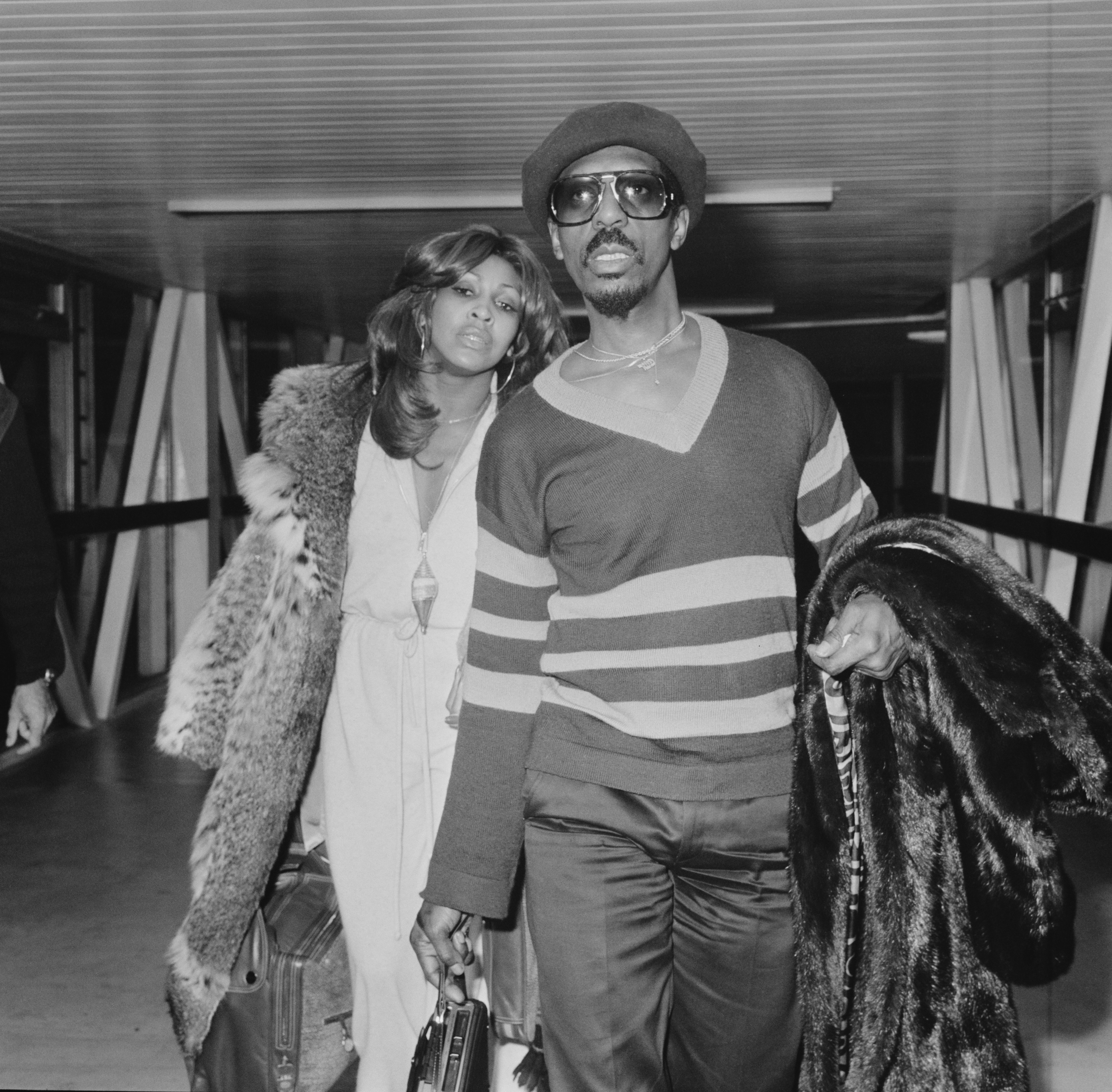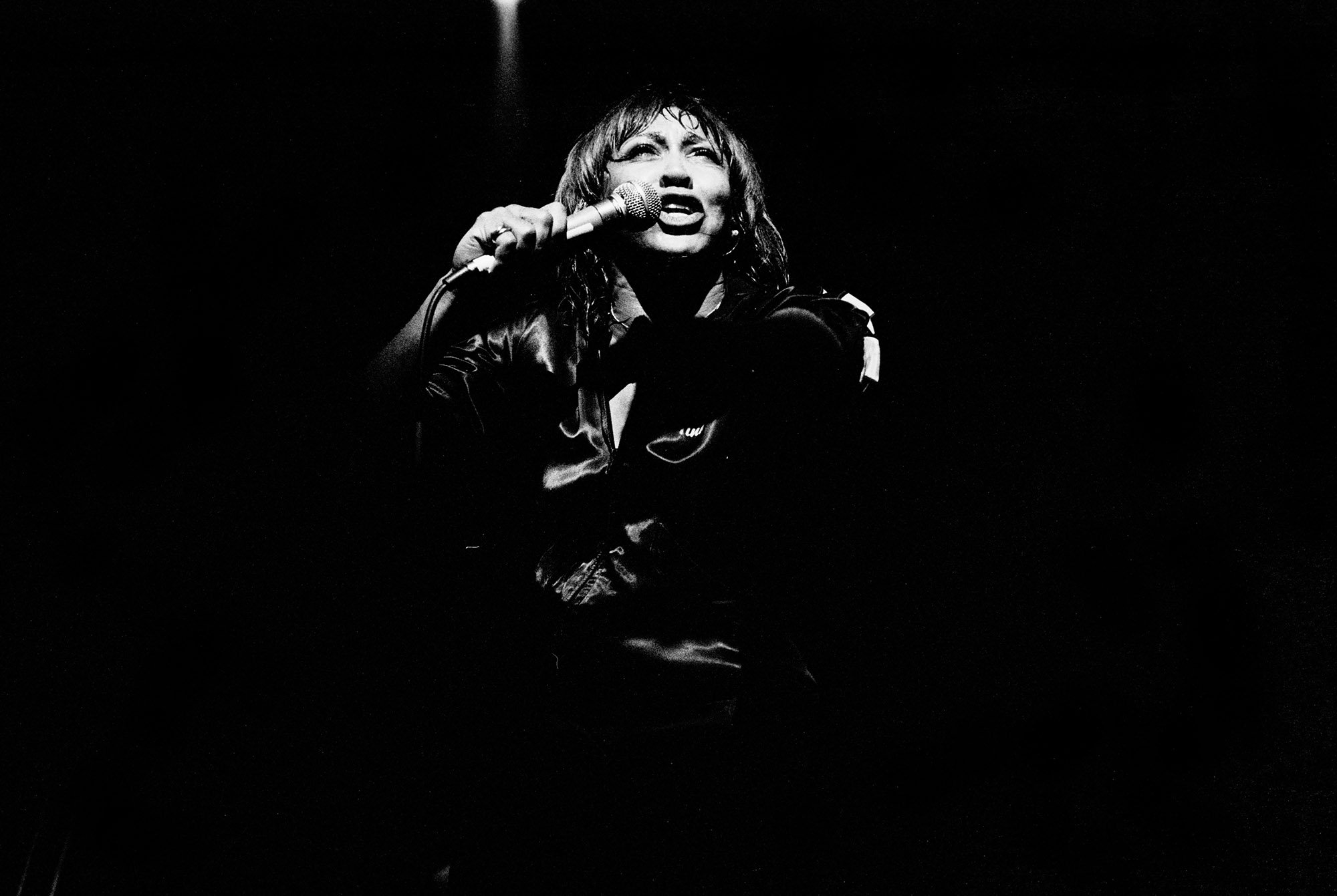TRIBUTE
Tina Turner — Proud Mary keep on burning

Throughout my high school years, she was always there, that irresistible rhythm our soundtrack. And then at university, she suddenly came back, all shimmery with those legs-to-there and that hair. Amazingly, her fabulous vocal delivery, with the characteristic, very controlled hoarse shout had never been more powerful.
When I was at high school in Pretoria in the late 1970s, our favourite haunt was a mall in Arcadia called Sterland. It was anchored by a huge movie theatre that was part of the Ster-Kinekor group. But the centre also had an ice rink, where we would go to rent skates and have fun, taking slidey steps and occasionally breaking out into something vaguely akin to actually skating.
I was a terrible skater, but the experience of cold ice and the hilarity of falling over and dragging your friends down with you was just irresistible. At the end of each skating session, they would clear the ice and only allow people who could actually skate to participate in what was called the “speed session”.

Tina Turner performs during the Schaefer Music Festival at Wollman Rink in Central Park, New York City, on 2 July 1971. (Photo: Jack Vartoogian / Getty Images)
And what song, do you think, would they choose to really get people really moving in that frantic glide with snapping heels that denotes the sweep of dangerous escape? The song was almost inevitable: Tina Turner’s Nutbush City Limits. And those real skaters would flash around the rink with elegance and poise, straining against momentum and gravity as they embodied the essence of delirious freedom.
And so Tina Turner, who died last week at the age of 82 of natural causes, became an icon for me; an out-of-place white kid struggling to escape the confines of a conservative city and a cloistered country at the tail end of apartheid. I could almost see Tina standing at the city limits of her hometown, Nutbush, looking into the potential of the future that lay just beyond. There was something about the pulsating, rhythmic relentlessness of the song that epitomises movement and release.
To say that Nutbush, Tennesee is a small town in the middle of nowhere doesn’t really do justice to small towns or, for that matter, nowhere. It’s an absolutely tiny town somewhere between Memphis and Nashville. The closest real town is Brownsville, where Anna Mae Bullock and her sister were sent to live with their grandmother when she was 11. Her father was a farmworker.
Her grandmother was Christian and conservative, but — and this is the thing about the American South — there was always the singing at the Baptist church, and she was part of that. The expression and passion of her future iconic performances were born, I would guess, in the spiritual confines and release of that church. She was a cheerleader at school, and that too showed up later in life, in her sexy flauntiness. We are our past in ways we don’t anticipate.

American musician Ike Turner and American singer-songwriter Tina Turner at Heathrow Airport, London, UK, 27 October 1975. (Photo: Frederick R Bunt / Evening Standard / Hulton Archive / Getty Images)
Anna met her future husband, Ike Turner, at a nightclub where he was performing with his band, the Kings of Rhythm. There is a deep irony about Ike. The Kings of Rhythm were an established R&B band at the time, and Ike offered Tina, whom he named, a route out waaay past the city limits of Nutbush. And yet, their relationship was also famously a different kind of cage. He was classically abusive: jealous of her ability, unrelentingly vacillating between his deep love and violent hatred; he became yet another jail from which to break free.
Confines and escape
In some ways, this is all too visible in her early songs. The lyrics of Nutbush City Limits are actually quite respectful about the tiny town, but full of hints about its claustrophobic nature: “A church house, gin house, schoolhouse, outhouse,” the song begins, with notable contrasts of venue embedded with implied meaning. But there was nothing subtle about the near desperation of rhythm. It was all about confines and escape.
People will argue about this of course, but probably her best song (she was writing the songs at this point, and Ike was “producing” them, ie, taking the credit) of the period was River Deep — Mountain High, this time written by Phil Spector, Jeff Barry and Ellie Greenwich. The mountain and the river, contrasting images, are brought together in the immensity of love.
But the song also contains, in the context of that abusive relationship, one of the saddest peons to love as a cage you can imagine:
“ … when you were a young boy,
Did you have a puppy?
That always followed you ’round, ’round, ’round
’Round, ’round, ’round
Well, I’m gonna be as faithful as that puppy
And no, I ain’t never gonna let you down.”
Well, as it happens she did let him down, as he had let her down. And we, as the beneficiaries of her later career, can all be thankful she kept moving and somehow found her own path. So many other singers of the period did not.
In his tribute to Turner after her death on Thursday, former US President Barack Obama called her “the Queen of Rock”, as everybody does, but he also called her “raw”. I know what he means: there was something terribly chafed and inflamed about her, down to the raspy vocal delivery. Yet to me, she was never only about that; she was a consummate, gifted, polished, and skilled performer.
Those legs-to-there and that hair
Throughout my high school years, she was always there, that irresistible rhythm our soundtrack. And then at university, she suddenly came back, all shimmery with those legs-to-there and that hair. Amazingly, her fabulous vocal delivery, with the characteristic, very controlled hoarse shout had never been more powerful.
What I didn’t realise at the time was the struggle it took to break back in. I suspect the music industry just couldn’t get its head around someone over 40 at the time presenting as a rock goddess. But there she was, belting it out, with conviction and character and gobs of sex appeal.

Tina Turner performs onstage at the Ritz, New York City, on 7 May 1981. (Photo: Gary Gershoff / Getty Images)
There are two interesting aspects of this comeback period. The songs had that 80s auditory slickness, and they were delivered with controlled prowess. But the subject matter was deeply contradictory: What’s Love Got to Do with It?, We Don’t Need Another Hero, and Private Dancer, a song about a stripper from the stripper’s point of view.
The songs were kind of cruel, and in a way, for her that was all too appropriate. They were rock/pop songs, but somehow beyond rock too. They weren’t penned by her: for some reason she stopped writing. The big hits were written by the great Scottish musicians Graham Lyle and Terry Britten, who wrote a bewildering array of songs for top artists. But really, to capture the zeitgeist of that moment and for her personally, she couldn’t have chosen better.
For me, the other interesting part of this period was that she managed to avoid the lure of Motown, and of R&B, and of disco. She plumbed for rock. What an extraordinary choice for a singer getting on in years. Maybe she thought Motown was too Aretha, disco too Donna, and R&B too Whitney.
But for all those lost boys who traced their ragged lives along the contours of rock music, what a blessing to have Tina join the pack. In the same way she revitalised herself, and woman singers, and struggling souls generally, she revitalised rock music for another generation.
In her speech at Tina’s second inauguration into the Rock and Roll Hall of Fame, Angela Bassett, who portrayed Turner in the 1993 film What’s Love Got to Do with It?, said “People still regularly tell me how much Tina meant to them… she had a gift to inspire.
It’s interesting to think of the singers whose path was cleared by Tina: Pink, Roxette, Fergie, Janet Jackson, Bonnie Tyler, Janelle Monáe, to some extent Lady Gaga, and even Miley Cyrus and, at a stretch, Paris Hilton — all the women singers with lots of flaunt, heavyweight vocal chops, and a fuck-you on their lips.
And then, of course, there is the big one: Beyoncé. There is a fantastic video we will be seeing a lot of, I suspect, of Beyoncé and Tina singing a duet of Proud Mary live at the Grammys in 2008, when Tina was 68. It’s magnificent.
“Proud Mary keep on burning” the song goes. Sounds like an epitaph. DM
This story was first published in the Mail & Guardian.


















 Become an Insider
Become an Insider
Great one Tim!